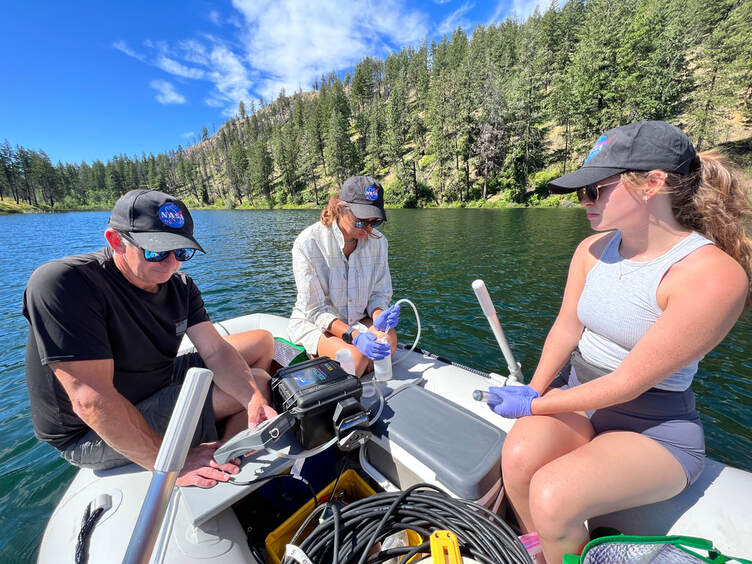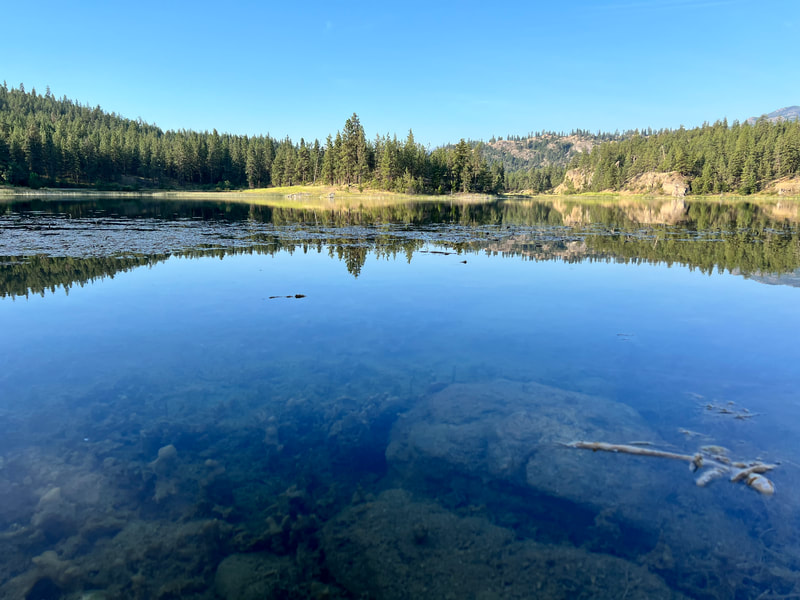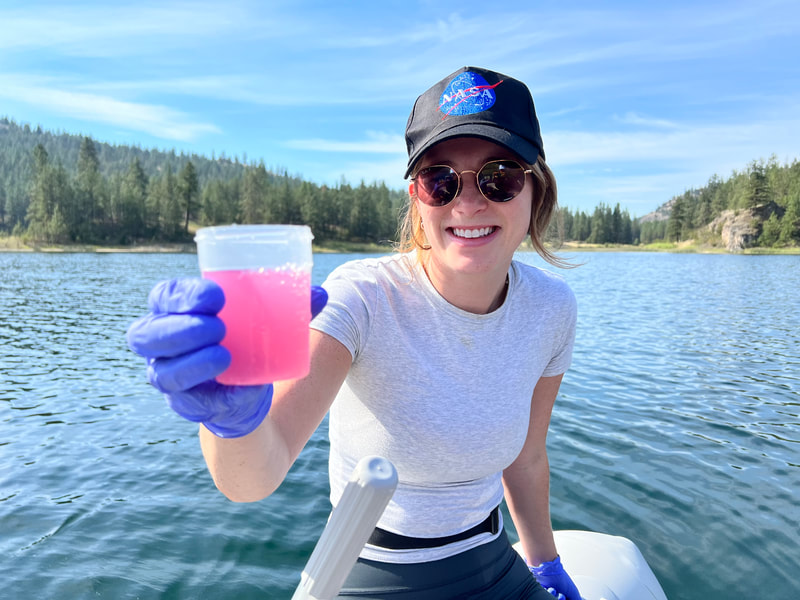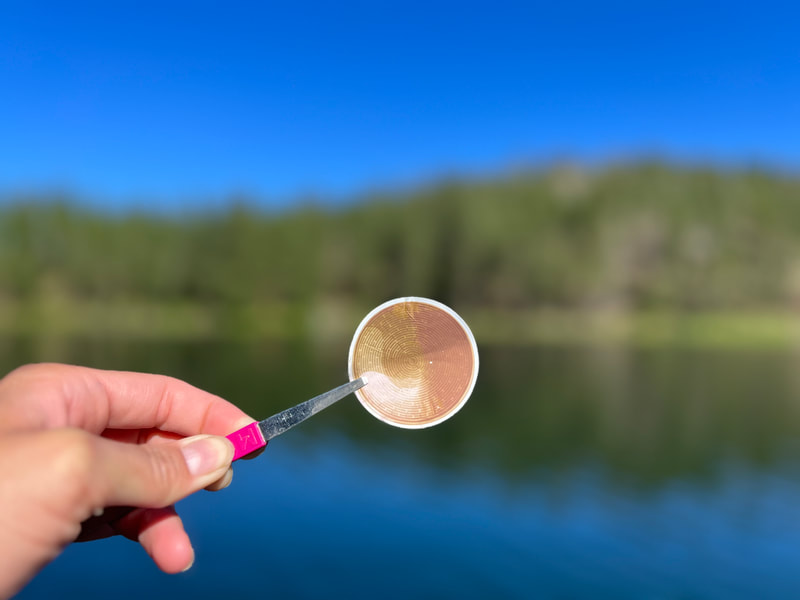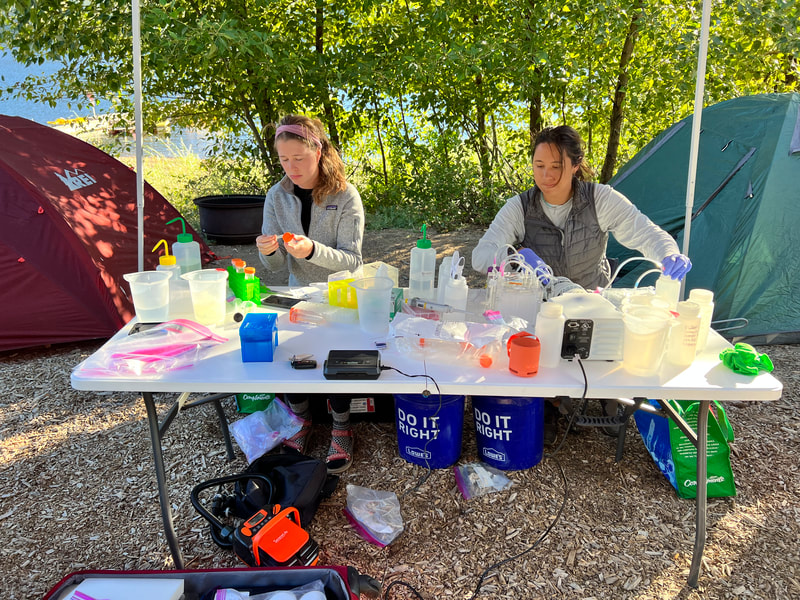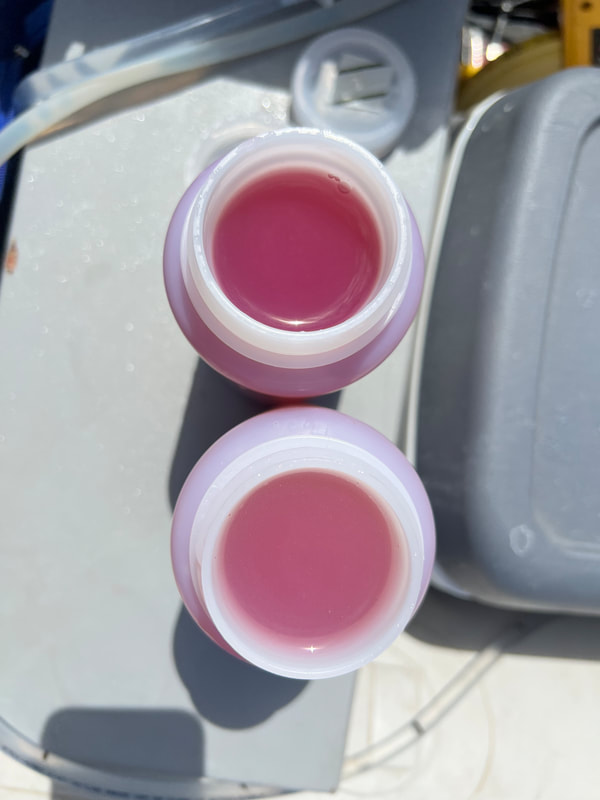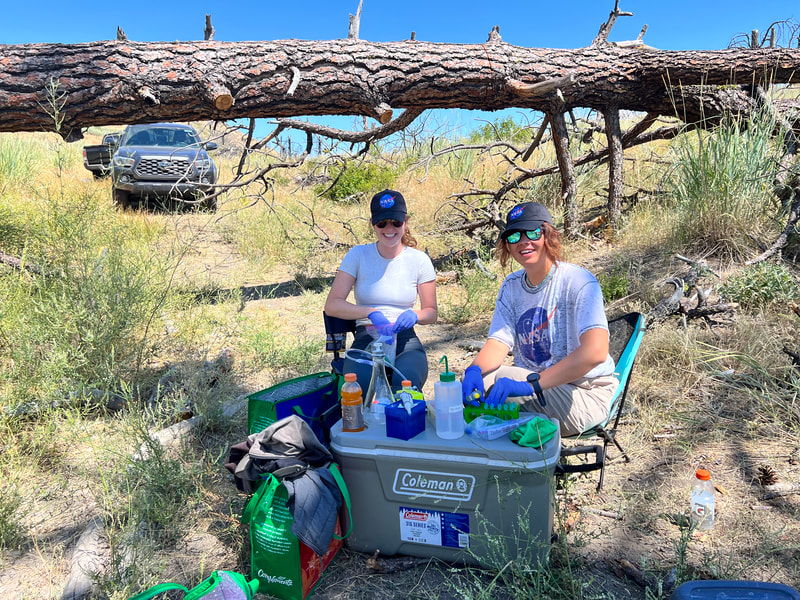There are more than 1000000000000000000000000000000 viruses on the planet.
They infect all animals, plants, and microorganisms.
The mission of the Silveira Lab is to uncover the huge biological diversity viruses encode, and how their infections shape our planet.
They infect all animals, plants, and microorganisms.
The mission of the Silveira Lab is to uncover the huge biological diversity viruses encode, and how their infections shape our planet.
We are recruiting!The Silveira Lab is recruiting two postdocs interested in viral and microbial ecology to work on a NASA-funded research project.
We are looking for someone with background in biogeochemistry and/or metagenomics. For more information on the project, check our our publication. |
Our lab recently discovered that viruses that infect purple and green sulfur bacteria have the genomic information to modulate the metabolism of the cells they infect. These ancient bacteria only thrive in anoxic lakes nowadays, but were once dominant in the oceans when oxygen was scarce in the planet. Geologists can use the biosignatures produced by these bacteria to understand these past Earth environments. Therefore, understanding how viruses affect these biosignatures is essential to understand early life on our planet, and potentially, on other ocean planets where microbial life may have emerged.
Ou Lab is partnering with geochemists at the University of Pittsburgh, Indiana University-Purdue University Indianapolis, and University of Lausanne in a NASA-funded project to to investigate how bacterial viruses affect the biosignatures of purple and green sulfur bacteria.
Ou Lab is partnering with geochemists at the University of Pittsburgh, Indiana University-Purdue University Indianapolis, and University of Lausanne in a NASA-funded project to to investigate how bacterial viruses affect the biosignatures of purple and green sulfur bacteria.
Natascha sampling purple sulfur bacteria in Poison Lake, WA
|
Silveira Lab Location University of Miami 1301 Memorial Drive. Cox Science Center, room 247/247 Coral Gables, FL 33146 Phone: +1 305 284 6220 |

